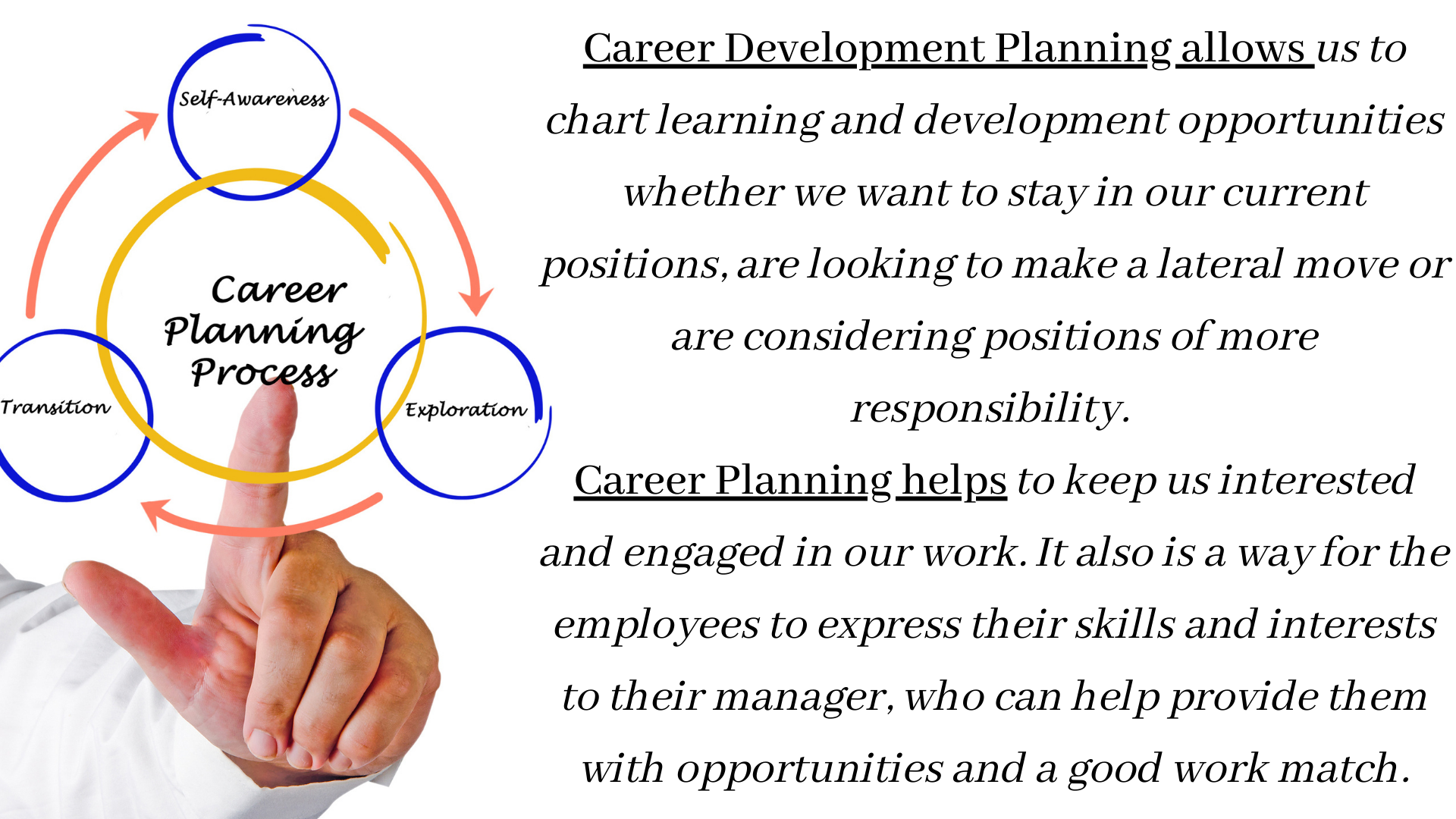Why is Career Planning Important For The Employee?

Why is Career Planning Important for Your Organization?
Leadership Continuity and Succession Management are becoming increasingly important within the government and public organizations. Organizations are realizing the need to identify potential leaders and understand the skills, experience and career aspirations of all employees, to help us achieve the goal of a strong and diverse Public Service.
Career Management
This is a process where the individual’s personal career goals are reconciled with organizational objectives. The unit manager will ensure that each individual’s career path will be planned according to the needs of this individual but will also take the requirements of the organisation into consideration. The individual together with his/her unit/section manager will decide together on the best possible options.
Career planning is not an activity that should be done once - in high school or college - and then left behind as we move forward in our jobs and careers. Rather, career planning is an activity that is best done on a regular basis - especially given the data that the average worker will change careers (not jobs) multiple times over his or her lifetime. And it's never too soon or too late to start your career planning.
Career planning is not a hard activity, not something to be dreaded or put off, but rather an activity that should be liberating and fulfilling, providing goals to achieve in your current career or plans for beginning a transition to a new career. Career planning should be a rewarding and positive experience.
The HR section (usually the training section is part of the HR component) has to ensure that the plans are put into action. They have to ensure that the training is scheduled, feedback is given and also that the needs are addressed.
Click here to view a video that explains how to help your employees create career development plans to transform your workplace.
Performance Appraisals Purpose And How To Make It Easier
Performance appraisals are essential for the effective management and evaluation of staff. Appraisals help develop individuals, improve organizational performance and feed into business planning. Formal performance appraisals are generally conducted annually for all staff in the organization. Each staff member is appraised by their line manager. Directors are appraised by the CEO, who is appraised by the chairman or company owners, depending on the size and structure of the organization.
Annual performance appraisals enable management and monitoring of standards, agreeing expectations and objectives and delegation of responsibilities and tasks. Staff performance appraisals also establish individual training needs and enable organizational training needs analysis and planning.
Performance appraisals also typically feed into organizational annual pay and grading reviews, which commonly also coincide with the business planning for the next trading year.
Performance appraisals generally review each individual's performance against objectives and standards for the trading year, agreed at the previous appraisal meeting.
Performance appraisals are also essential for career and succession planning - for individuals, crucial jobs, and for the organization as a whole.
Performance appraisals are important for staff motivation, attitude and behaviour development, communicating and aligning individual and organizational aims and fostering positive relationships between management and staff.
Performance appraisals provide a formal, recorded, regular review of an individual's performance and a plan for future development.
Job performance appraisals - in whatever form they take - are therefore vital for managing the performance of people and organizations.
After the employee was appraised by the supervisor/manager, they should discuss the merits that were awarded to the employee.